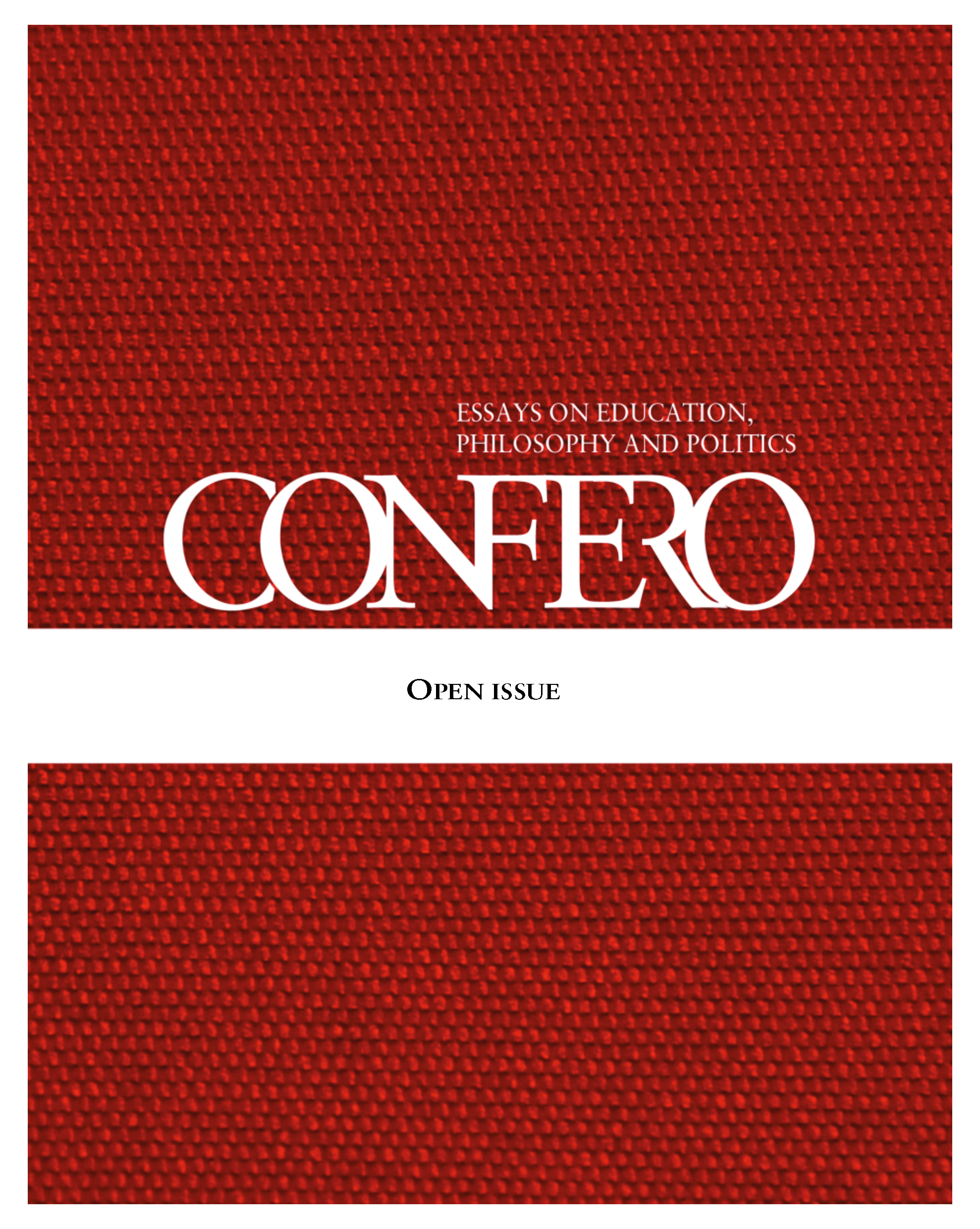Pippi Longstocking as Friedrich Nietzsche’s overhuman
DOI:
https://doi.org/10.3384/confero.2001-4562.160111Abstract
Not Available.
References
Aristotle (ca 330 BC/1992). Nicomachean Ethics. Mineola: Dover.
Baudouin, Charles (1924/2015). Contemporary Studies. New York: Routledge.
Bentham, Jeremy (1780/1996). An Introduction to the Principles of Morals and Legislation. Oxford: Clarendon Press.
Butler, Paul (2011). A Stroke of Bad Luck: CADASIL and Friedrich Nietzsche’s “Dementia” or Madness. In P. McNamara (Ed.), Dementia: History and Incidence. Santa Barbara: Praeger.
Deleuze, Gilles (1962/1983). Nietzsche and Philosophy. New York: Colombia University Press.
Derrida, Jacques (1978/1979). Spurs: Nietzsche’s Styles. Chicago: Chicago University Press.
Descartes, René (1644/1983). Principles of Philosophy. Boston: Reidel.
Dostoyevsky, Fyodor (1880/1992). The Brothers Karamazov. Cambridge: Cambridge University Press.
Emerson, Ralph Waldo (1841/2007). The Over-Soul. In Essays: First series. Stilwell: Digireads.com Publishing.
Foucault, Michel (1971/1977). Nietzsche, Genealogy, History. In D. Bouchard (Ed.), Language, Counter-Memory, Practice: Selected Essays and Interviews. Oxford: Basil Blackwell.
Freud, Sigmund (1929/1989). Civilization and Its Discontents. New York: Norton
Gaare, Jørgen & Sjaastad, Øystein (2002). Pippi and Sokrates: Filosofiska vandringar i Astrid Lindgrens värld [Pippi and Socrates: Philosophical Excursions Into the World of Astrid Lindgren]. Stockholm. Natur och Kultur.
Heidegger, Martin (1936-39/1979). Nietzsche, Volume 1: The Will to Power as Art. San Francisco: Harper & Row.
Heidegger, Martin (1939-46/1984). Nietzsche, Volume 2: The Eternal Recurrence of the Same. San Francisco: Harper & Row.
Jaspers, Karl (1936/1997). Nietzsche: An Introduction to the Understanding of His Philosophical Activity. Baltimore: John Hopkins University Press.
Kant, Immanuel (1785/1981). Grounding for the Metaphysics of Morals. Indianapolis: Hackett.
Kaufmann, Walter (1974). Nietzsche: Philosopher, Psychologist, Antichrist. 4th edition. Princeton: Princeton University Press.
Kaufmann, Walter (1974). Translator’s Introduction. In F. Nietzsche, The Gay Science: New York: Vintage Books.
Kerferd, George (1981). The Sophistic Movement. Cambridge: Cambridge University Press.
Lindgren, Astrid (1945). Pippi Långstrump. Stockholm: Rabén & Sjögren
Lundqvist, Ulla (1979). Århundradets barn: Fenomenet Pippi Långstrump och dess förutsättningar [The Child of the Century: The Phenomenon of Pippi Longstocking, and its Premises]. Stockholm: Rabén & Sjögren.
Nietzsche, Friedrich (1872). The Birth of Tragedy.
Nietzsche, Friedrich (1872). The Philosopher.
Nietzsche, Friedrich (1873). On Truth and Lies in a Nonmoral Sense.
Nietzsche, Friedrich (1874). Schopenhauer as Educator.
Nietzsche, Friedrich (1878). Human, All Too Human.
Nietzsche, Friedrich (1879). Assorted Opinions and Maxims.
Nietzsche, Friedrich (1880). The Wanderer and His Shadow.
Nietzsche, Friedrich (1881). Daybreak.
Nietzsche, Friedrich (1882). The Gay Science.
Nietzsche, Friedrich (1883). Thus Spoke Zarathustra.
Nietzsche, Friedrich (1886). Beyond Good and Evil.
Nietzsche, Friedrich (1887). On the Genealogy of Morality.
Nietzsche, Friedrich (1888). The Anti-Christ.
Nietzsche, Friedrich (1888). Twilight of the Idols.
Nietzsche, Friedrich (1888). Ecce Homo.
Nietzsche, Friedrich (1883-88).. The Will to Power.
O’Sullivan, Emer (2005). Comparative Children’s Literature. New York: Routledge.
Solomon, Robert & Higgins, Kathleen (2000). What Nietzsche Really Said. New York: Schocken Books.
Schopenhauer, Arthur (1840/1995). On the Basis of Morality. Indianapolis: Hackett.
Tholander, Michael (2000). Friedrich Nietzsche – och Pippi Långstrump. Tvärsnitt, 22(3), 2-17.
Wittgenstein, Ludwig (1921/1971). Tractatus Logico-Philosophicus. London: Routledge
Wittgenstein, Ludwig (1953). Philosophical Investigations. Oxford: Blackwell.
Young, Julian (2010). Friedrich Nietzsche: A Philosophical Biography. New York: Cambridge University Press. DOI: 10.1017/cbo9781139107013
Downloads
Published
Issue
Section
License
Copyright (c) 2016 Michael Tholander

This work is licensed under a Creative Commons Attribution 4.0 International License.
As Confero is an open access journal, this means that anyone who can access the Internet can freely download and read the journal. There are no commercial interests for Linköping University Electronic Press or Confero in publishing the journal.
The core idea of open access is that copyright remains with the author(s). However, we publish with the agreement of the author that if she or he decides later to publish the article elsewhere, that the publisher will be notified, prior to any acceptance, that the article has already been published by Confero.
When publishing with Confero, it is with the agreement of the author that if they make their article available elsewhere on the internet (for example, on their own website or an institutional website), that they will do so by making a link to the article as published in Confero using the Digital Object Identifier (DOI) number of the article and acknowledge in the text of the site that the article has been previously published in Confero.
As evident by the markers on our homepage, Confero falls under the Creative Commons licence abbreviated BY. This means that we allow others to use, spread and elaborate on the published articles, as long as they acknowledge who published it and where it was originally published.



